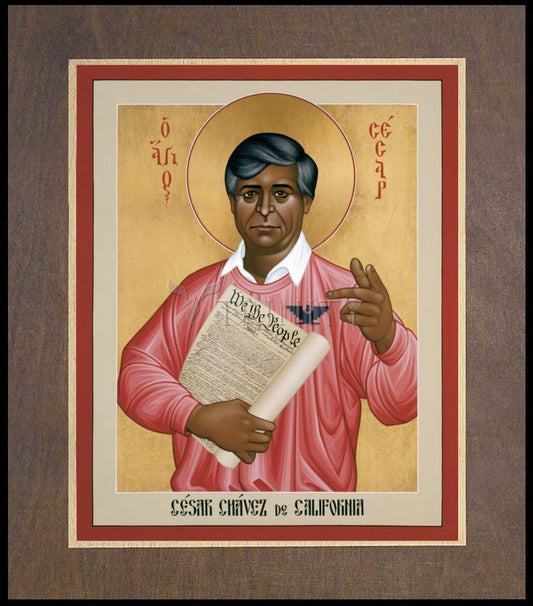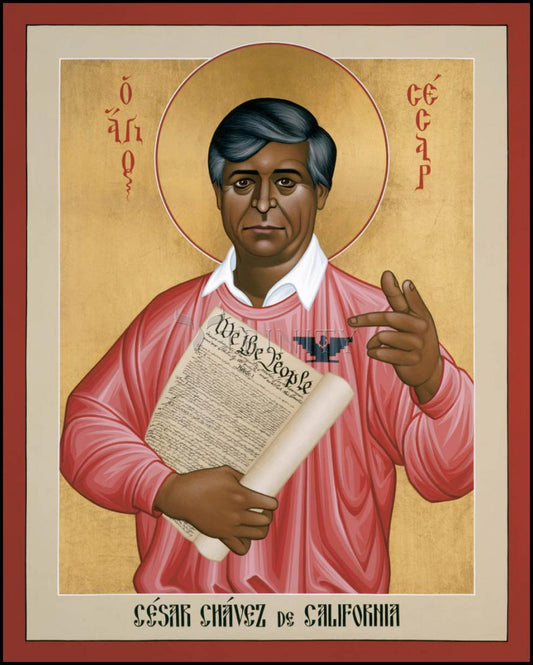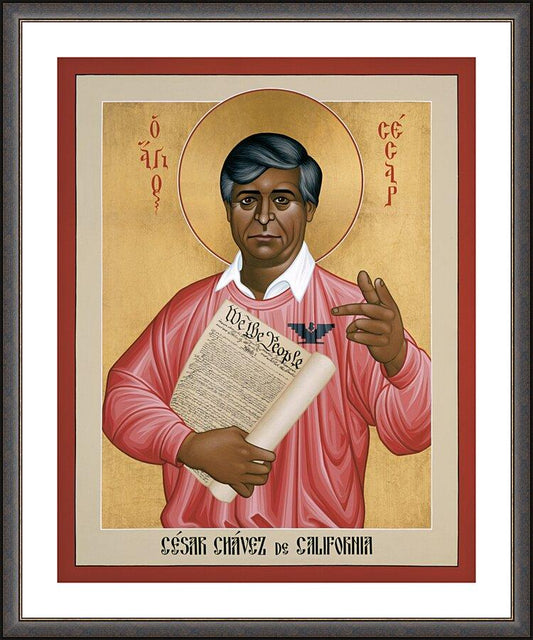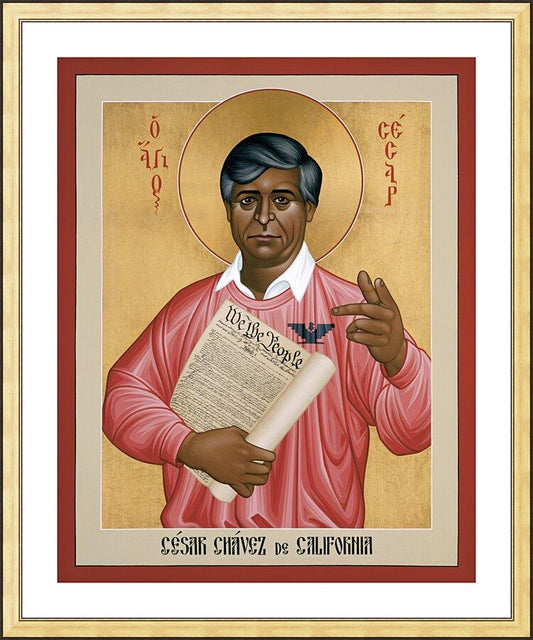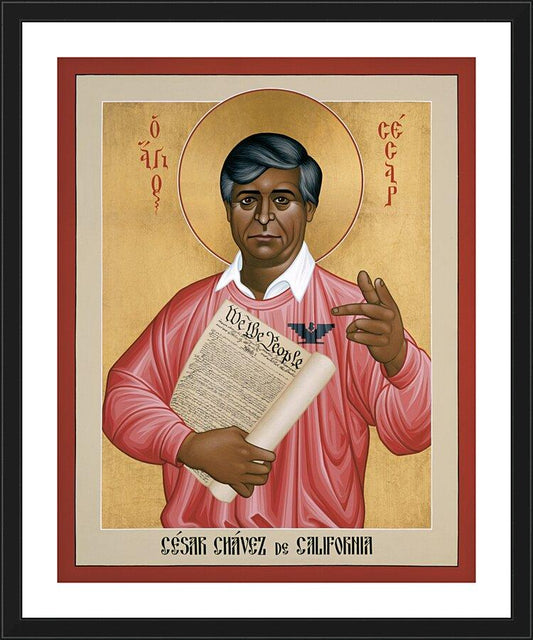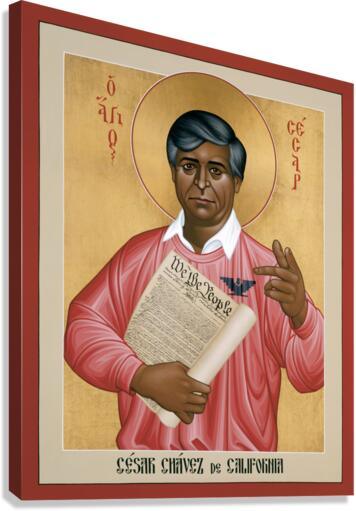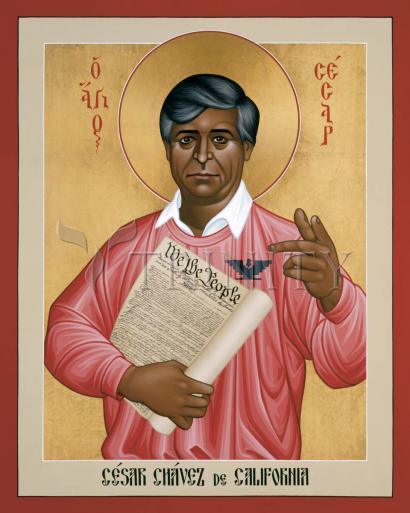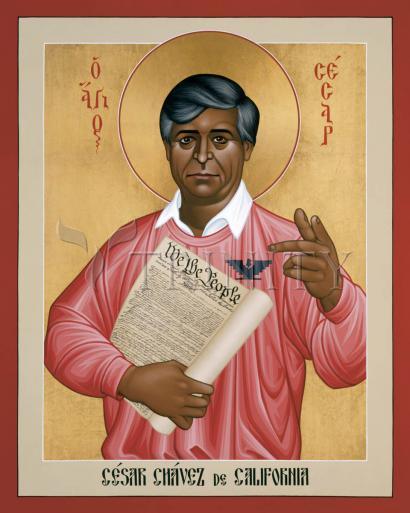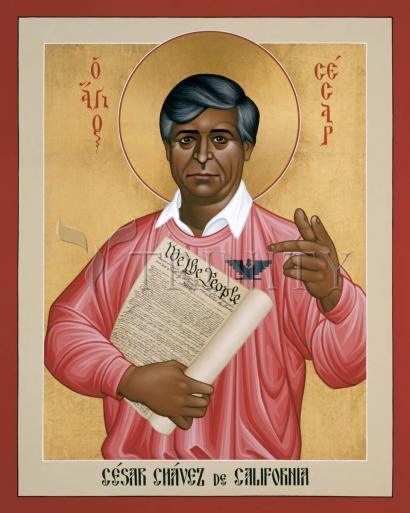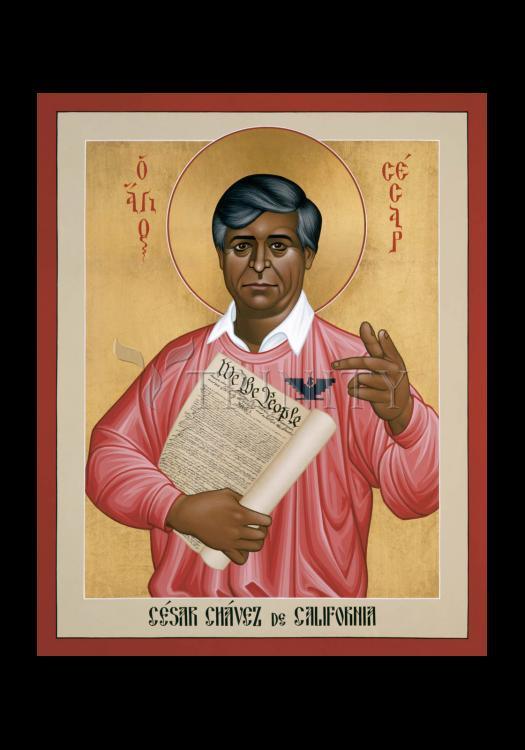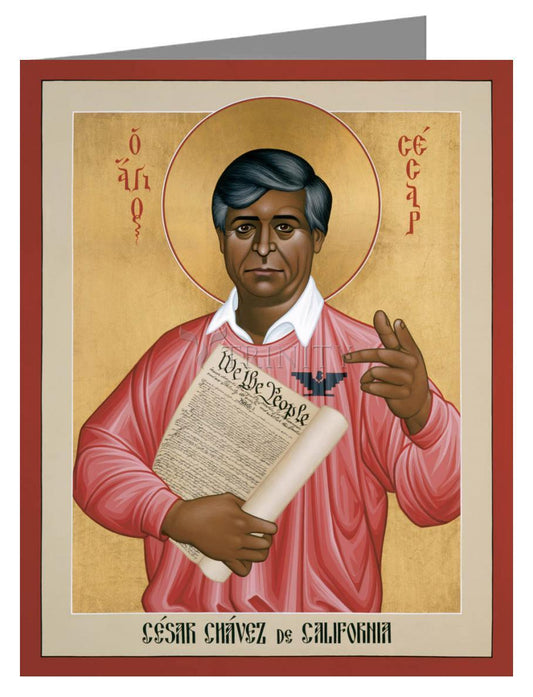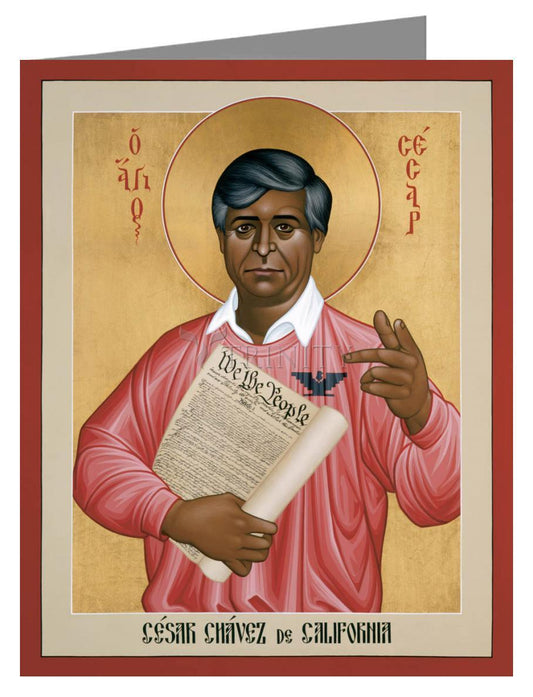"One of the heroic figures of our time." Senator Robert F. Kennedy
Recipient of the Presidential Medal of Freedom & the Aguila Azteca
Cesar Estrada Chavez founded and led the first successful farm workers' union in U.S. history. When he passed away on 23 April 1993, he was president of the United Farm Workers of America, AFL-CIO
Cesar was born March 31, 1927, on the small farm near Yuma, Arizona that his grandfather homesteaded during the 1880's. At age 10, life began as a migrant farm worker when his father lost the land during the Depression. These were bitterly poor years for Cesar, his parents, brothers and sisters. Together with thousands of other displaced families, the Chavez family migrated throughout the Southwest, laboring in fields and vineyards. Cesar left school after the eighth grade to help support his family.
He joined the U.S. Navy in 1945, and served in the western Pacific during the end of World War II. In 1948, he married Helen Fabela, who he met while working in Delano vineyards. The Chavez family settled in the East San Jose barrio of Sal Si Puedes (get out if you can).
In 1952, Cesar was laboring in apricot orchards outside San Jose when he met Fred Ross, an organizer for the Community Service Organization, a barrio-based self-help group sponsored by Chicago-based Saul Alinsky's Industrial Areas Foundation. Within several months Cesar was a full-time organizer with CSO, coordinating voter registration drives, battling racial and economic discrimination against Chicano residents and organizing new CSO chapters across California and Arizona.
Cesar served as CSO national director in the late 1950's and early 1960's. But his dream was to create an organization to help farm workers whose suffering he had shared. In 1962, after failing to convince the CSO to commit itself to farm worker organizing, he resigned his paid CSO job, the first regular paying job he had. He moved his wife and eight young children to Delano, California where he founded the National Farm Workers Association (NFWA).
These were difficult years for Cesar and Helen Chavez. Helen worked in the fields during the week and on weekends with her husband to support the family. He often babysat his youngest children as he traveled to dozens of California farm communities, slowly building a nucleus of dedicated farm worker members. "If you're outraged at conditions, then you can't possibly be free or happy until you devote all your time to changing them and do nothing but that," he said. "But you can't change anything if you want to hold onto a good job, a good way of life and avoid sacrifice."
In September 1965, Cesar's NFWA, with 1200 member families, joined an AFL-CIO sponsored union in a strike against major Delano area table and wine grape growers. Against great odds, Cesar led a successful five year strike-boycott that rallied millions of supporters to the United Farm Workers. He forged a national support coalition of unions, church groups, students, minorities and consumers. The two unions merged in 1966 to form the UFW, and it became affiliated with the AFL-CIO.
From the beginning, the UFW adhered to the principals of non-violence practiced by Gandhi and Dr. Martin Luther King, Jr. The 1965 strikers took a pledge of non-violence and Cesar conducted a 25 day fast in 1968 to reaffirm the UFW's commitment to non-violence. The late Senator Robert F. Kennedy called Cesar "one of the heroic figures of our time," and flew to Delano to be with him when he ended the fast.
By 1970, the boycott convinced most table grape growers to sign contracts with the UFW. That year, to limit the UFW's success to the vineyards, growers in the vegetable industry signed "sweetheart" pacts with the Teamsters Union. When the UFW's table grape agreements came up for renegotiation in 1973, growers signed with the Teamsters, prompting 10,000 farm workers in California's coastal valleys to walk out of the fields in protest.
Cesar called for a new worldwide grape boycott. By 1975, a Louis Harris poll showed 17 million American adults were honoring the grape boycott. It forced growers to support then California Governor Jerry Brown's collective bargaining law for farm workers, the 1975 Agricultural Labor Relations Act.
Since 1975, the UFW won most of the union elections in which it participated. Despite the farm labor board's bureaucratic delays, farm workers made progress. By the early 1980's farm workers numbered in the tens of thousands were working under UFW contracts enjoying higher pay, family health coverage, pension benefits and other contract protections.
Then, in 1982, with more than $1 million in grower campaign donations, Republican George Deukmejian was elected Governor of California. Most objective observers agree that under Deukmejian, the farm labor board ceased to enforce the law. In 1984, Cesar called for another grape boycott. In July and August 1988, he conducted a 36 day "Fast for Life" to protest the pesticide poisoning of grape workers and their children.
Cesar lived with his family since 1970 at La Paz, in Keene, California, the union's headquarters in Kern County's Tehachapi Mountains, east of Bakersfield. Like other UFW officers and staff, he received subsistence pay that didn't top $5,000 a year.
Cesar Chavez passed away on April 23, 1993, at the age of 66. More than 30,000 people participated in Cesar's funeral at Delano. He was laid to rest at La Paz in a rose garden at the foot of the hill he often climbed to watch the sun rise.
In 1991, Cesar received the Aguila Azteca (The Aztec Eagle), Mexico's highest award presented to people of Mexican heritage who have made major contributions outside of Mexico. On August 8, 1994, Cesar became the second Mexican American to receive the Presidential Medal of Freedom, the highest civilian honor in the United States. This award was presented posthumously by President Bill Clinton. Helen F. Chavez and six of her eight children traveled to the White House to receive the honor.
Many skeptics declared the union dead after Cesar passed away, but such reports were proven to be premature. On Cesar's birthday, March 31st, 1994, under the leadership of his son-in-law and successor Arturo S. Rodriguez, the UFW marched 343 miles from Delano to Sacramento, echoing Cesar's historic 1966 peregrinación and demonstrating the strength of the UFW and the fact that Cesar's dream of a national union for farm workers remains a possibility. The UFW continues to win elections and negotiate contracts for farm workers.
In 1994, Cesar's family and the officers of the UFW created the Cesar E. Chavez Foundation to inspire current and future generations by promoting the ideals of Cesar's life, work and vision. The Foundation's headquarters is at La Paz, the future location of the Cesar E. Chavez Library and the Cesar E. Chavez Training and Education Center.
"Excerpts from The Cesar Chavez Foundation



